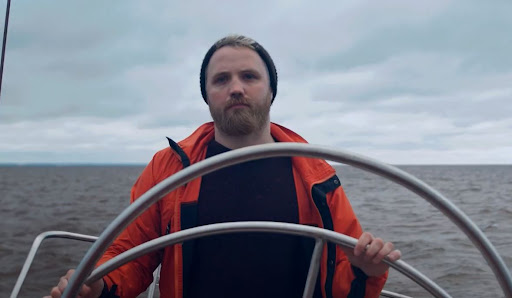What does web3 have to do with the sea? Quite a lot if SeaCoast has its way. The Spanish startup, formed with the goal of improving maritime safety and knowledge sharing, is commencing its COAST token sale today (October 25th). Once completed, SeaCoast’s native token will be in the hands – or rather wallets – of a global audience. Thereafter, its three nautical apps will be put through their paces, with full web3 functionality built in.
Taming the Waves
Despite advancements in technology and health and safety improvements, the world’s oceans remain a dangerous place. And while it would be easy to assume that the bulk of all serious accidents occur far offshore in deep waters, the reality lies much closer to home. The bulk of all accidents, at least in the case of rental boats, take place when mooring.
That’s a statistic that SeaCoast is determined to fix, and it’s developed an app for this express purpose. PortView, essentially the Google Maps of sailing, supports the safe mooring of vessels using augmented reality and audio assistance.
Given that each inlet, port, and harbour has its own peculiarities, from hidden currents to concealed hazards, it stands to reason that those with best knowledge of the optimum way to navigate to shore are locals. The trouble is that up until now there’s been little incentive to share this knowledge. That’s where SeaCoast and its native COAST token comes in. Share some wisdom, potentially save some lives, earn some tokens for your troubles and everyone’s a winner.
AR Goes to the Beach
SeaCoast isn’t just targeting sailors; it’s also designing apps for those who never or rarely take to the water. Landlubbers are equally catered for via ShoreView, a coastal navigation app that forms a virtual assistant that facilitates coastal navigation. It uses augmented reality to show the user in real time what’s invisible to the naked eye. This could be suitable ports for berthing boats, but it could just as easily be local cafes and beauty spots that don’t show up on Google Maps.
While the technology used by web3 projects such as SeaCoast is impressive, the solutions being engineered aren’t machine-based: they’re human. What SeaCoast’s trio of apps, known as ShoreView, PortView, and PaperBoat are solving is information asymmetry. In other words, while one person may be knowledgeable about sailing, they are not an expert on a foreign coastline they’re heading towards. The king of that domain might be a humble dog walker or beachcomber who treads that terrain every day.
SeaCoast is an ambitious project that’s set its sights on the horizon and whatever lies beyond. But if it can deliver even modest financial rewards to its users, who earn COAST tokens for the maritime “alpha” they supply, it will have done its bit to make the world’s waterways safer – while showing that nothing is off-limits to web3.
Disclaimer: This article is provided for informational purposes only. It is not offered or intended to be used as legal, tax, investment, financial, or other advice
Credit: Source link






















 Bitcoin
Bitcoin  Ethereum
Ethereum  XRP
XRP  Tether
Tether  Solana
Solana  USDC
USDC  Dogecoin
Dogecoin  Cardano
Cardano  Lido Staked Ether
Lido Staked Ether  TRON
TRON  Chainlink
Chainlink  Avalanche
Avalanche  Wrapped Bitcoin
Wrapped Bitcoin  Wrapped stETH
Wrapped stETH  Stellar
Stellar  Sui
Sui  Toncoin
Toncoin  Hedera
Hedera  Shiba Inu
Shiba Inu  WETH
WETH  LEO Token
LEO Token  Litecoin
Litecoin  Polkadot
Polkadot  Bitget Token
Bitget Token  Bitcoin Cash
Bitcoin Cash  Hyperliquid
Hyperliquid  USDS
USDS  Uniswap
Uniswap  Wrapped eETH
Wrapped eETH  Ethena USDe
Ethena USDe  Pepe
Pepe  MANTRA
MANTRA  NEAR Protocol
NEAR Protocol  Aave
Aave  Monero
Monero  Ondo
Ondo  WhiteBIT Coin
WhiteBIT Coin  Aptos
Aptos  Internet Computer
Internet Computer  Official Trump
Official Trump  Mantle
Mantle  Ethereum Classic
Ethereum Classic  Dai
Dai  Cronos
Cronos  POL (ex-MATIC)
POL (ex-MATIC)  Bittensor
Bittensor  OKB
OKB 
